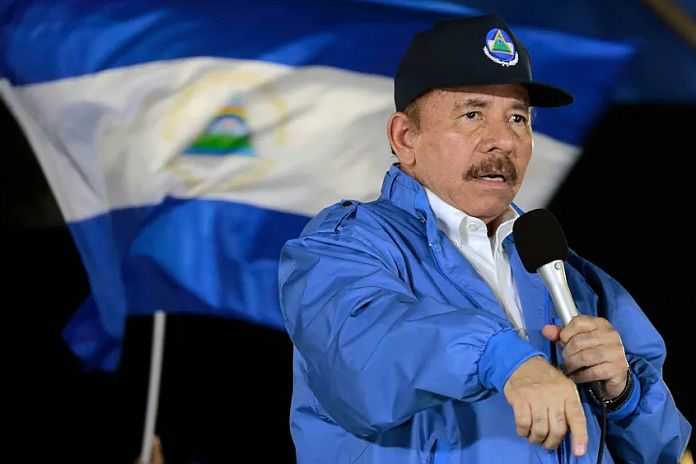By Mina Fonseca
What is the similarity between Álvaro, a 15-year old Nicaraguan adolescent and a 47-year old Black American by the name of George?
The similarity lies in the agonizing phrases that both pronounced before dying at the hands of the police force in their own countries. “It hurts to breathe” and “I can’t breathe,” were the words and images on social networks which have stayed forever in the memory of thousands of people worldwide. Witnesses were stunned by the hate and contempt repressive apparatus exert on the human condition.
A man from Minnesota, a parent, thrown on the ground, unable to move, with police agent Chauvi’s knee squeezing his neck and choking him; and the 15-year old boy with a bullet in his throat fired by a sniper of the Ortega’s regime in Nicaragua.
Alvarito the martyr boy, as he is remembered, on April 20, 2018, set aside his fears and driven by a spirit of solidarity, was helping to bring water to students who were shielded from a police siege at the National Engineering University.
In April of that year, Nicaraguan university students turn to the streets to defend senior citizens who days before had been beaten by police agents, for manifesting themselves against social security reforms and a rise in their contributions. A fatal shot from an AK rifle to the boy’s throat had him bleeding and experiencing shortness of breath. “It hurts to breathe” he repeated in distress as he felt life drawing out of him. He was quickly driven to a clinic but was not admitted because the vice president and wife of the dictator, Rosario Murillo, had ordered not to provide assistance to wounded demonstrators. He was taken to another hospital but by then it was too late…he died in the operating room.
On Tuesday, April 20 justice was served for George Floyd’s relatives and the people of the United States of America at an oral and impartial court that convicted the police officer who killed Floyd. Meanwhile in Nicaragua that same day the grief-stricken parents were honouring their son’s life and still await the coveted justice, three years after his killing.
In Nicaragua with a judicial system subservient to the power of president Ortega, it is unlikely that an impartial investigation would take place to try the policemen and paramilitaries who, according to findings from the OAS’ Interdisciplinary Group of Independent Experts, GIEI (for its acronym in Spanish), the Interamerican Commission for Human Rights and the High Commissioner for the United Nations, perpetrated the death of 325 persons, largely young people, in scarcely two months of protests from April to May 2018.
Following these events, Ortega who came to power in 2007 and continues to rule after three consecutive election periods due to the amendment of an article in the Constitution which prohibited re-election, has unleashed political persecution and imprisonment never seen before, and to this date has pursued with state terrorism to keep Nicaraguan society as a whole submerged.
The right to convene is prohibited. He ordered his police force to surround the houses of his opponents, ex-political prisoners and the homes of relatives of those who killed in April. Ortega has gone as far as to impose surveillance on churches while memorial masses are ongoing. One hundred political prisoners are still arbitrarily held. The police institution has shown no mercy and it is obvious to everyone, to the point of deploying up to 17 armed policemen to surround the home of one married couple who opposes the regime.
As elections draw near, the Ortega-Murillo dictatorship has become more fearful and acts ever more repressive, as a result. They know they are despised and to restrain mobilization of the opposition which will go united for the elections in November 2021, they enact coercive laws.
Ortega’s rhetorical discourse regarding a coup d’état against his government, evidence of which he never made known. In his blindness of power, Ortega has a hard time recognizing the autonomy of opposition and the pluralism of political ideas which ultimately converge in one unique quest; Justice.
Next November, Nicaragua debates itself between freedom and dictatorship. Somoza was a member of a family dynasty that governed the country for half a century until 1979 when he fled following the triumph of the Sandinista Front guerrillas, among whose commanders was Daniel Ortega. Carlos Marx said that historical events occur primarily as a tragedy and afterwards as a comedy.
This time, however, it is a vile comedy that has had a toll and continues to bear a brunt for the people of Nicaragua who have shed blood and too many tears. We are fighting to free ourselves from the stigma of a new family dynasty.
Nicaraguans cannot, should not forget, neither impunity, either pardon, neither repetition.
Mina Fonseca is a Nicaraguan Journalist.





